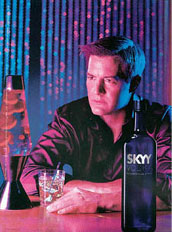
The Strong Silent Type focuses on “being in charge, acting decisively, containing emotion, and succeeding with women.” This stereotype reinforces the assumption that men and boys should always be in control, and that talking about one’s feelings is a sign of weakness.

The Jock is always willing to “compromise his own long-term health; he must fight other men when necessary; he must avoid being soft; and he must be aggressive.” By demonstrating his power and strength, the jock wins the approval of other men and the adoration of women.
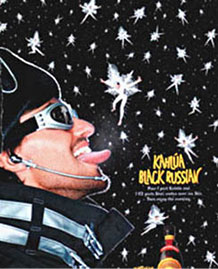
The Joker is a very popular character with boys, perhaps because laughter is part of their own “mask of masculinity.” A potentially negative consequence of this stereotype is the assumption that boys and men should not be serious or emotional. However, reseearchers have also argued that humorous roles can be used to expand definitions of masculinity.
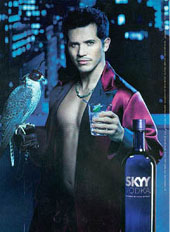
The Big Shot is defined by his professional status. He is the “epitome of success, embodying the characteristics and acquiring the possessions that society deems valuable.” This stereotype suggests that a real man must be economically powerful and socially successful.
The Action Hero is “strong, but not necessarily silent. He is often angry. Above all, he is aggressive in the extreme and, increasingly over the past several decades, he engages in violent behavior.”
The Sexpot/Bimbo is the sexualized “girl.” Flirty, giggly and jiggly, this stereotype is young, usually blonde, and non-threatening.
The Man Eater is the sexually aggressive female. She has a harder edge than the sexpot and is usually a bit older. Glamorous rather than pretty, she gets what she wants from men by using her sexuality.
The Rebel asserts her independence by being a bit wild, in a cute and sexy way. Unlike her male counterpart, the action hero, female rebels are not portrayed as being angry or aggressive. Instead, they achieve liberation through drinking, smoking and partying.
The Prize is that “perfect woman” who can be yours if you consume the right beverage. Pretty, but not giggly, the prize smiles provocatively or remains emotionally aloof. This type of woman is more commonly portrayed in TV commercials in which there is time to develop a plot to explain how she is “won.”

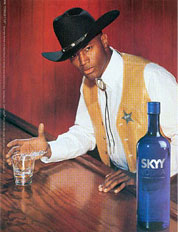
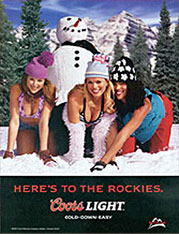
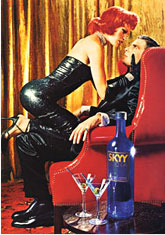
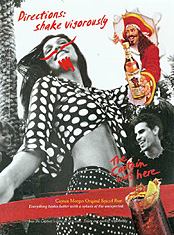
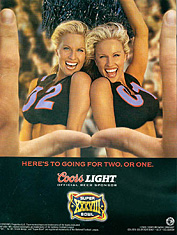
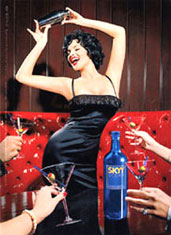
Leave a comment
Comments feed for this article